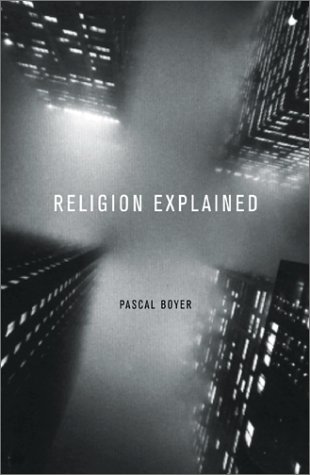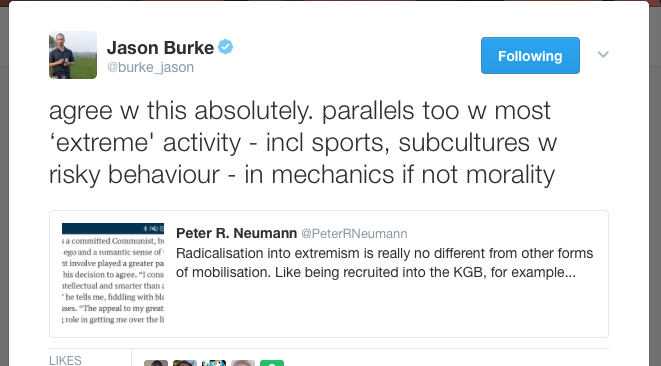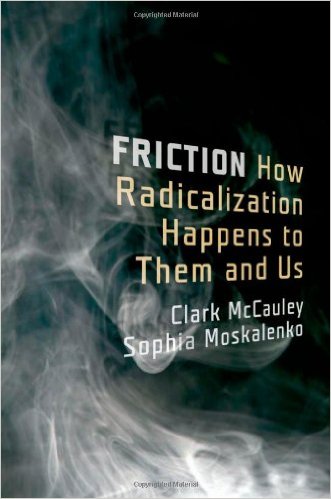I used to be fascinated by the question of free will. I still am, but it is some times since I have read the various debates. I see that Richard Carrier has posted a review of an online debate between Daniel Dennett and Sam Harris at Dennett vs. Harris on Free Will that will be of interest to some. (As you may guess from my recent post addressing Harris’s views on another matter, I think Sam Harris comes out as the less clear thinker in such a debate.)
I don’t know if I have Richard Carrier’s attention with this post but just on the off-chance I do, with well-meaning intention I would like to add another comment on an unrelated matter. Carrier writes:
In his response, after 200 words of introduction, Sam Harris first burns 600 words complaining about Dennett being mean to him, treating criticism as an affront to his dignity that requires elaborating on for some reason. This is not a good start. It is usually a red flag for not having an actual defense. It’s the sign of a hack: If you can’t rebut content, complain about tone.
And concludes with:
Maybe some day Harris will realize all the mistakes he made here, and how he may be making them elsewhere too. The outcome will be marvelous.
Richard Carrier knows what it is like to have critics treating him and his works unfairly, very unfairly, even falsely, “being [extremely] mean to him”. Richard is known not to shrink back from complaining about such treatment in some of his response. Now in Richard’s case complaining in such cases about “tone” is not a sign that he has no “actual defense” or that he is “a hack”. But that’s not how people tend to react. Complaining in the heat of the moment about tone and unfair treatment can create the impression of being shrill. It certainly robs one of the moral high ground one has just gained by being the subject of bitter and false accusations. That moral high ground becomes evident by a response that shows up one’s attackers for what they are. The moral high ground is clear for all when an unprofessional attack is confronted with a professional and civil response.
I think it is a shame that John Loftus (an anti-Christian polemicist) and Richard Carrier cannot work harmoniously and supportively together. Recently, for example, John Loftus in his post Dr. Wallace Marshall Highly Endorses David Marshall’s Book, “Jesus is No Myth” added this disappointing remark:
Richard Carrier thinks this book is bad to say the least, but I find Carrier to be shrill, very offensive and exaggerated in defense of his own work.
Richard, you know you have the method and logic on your side (generally) so there is no need to display anything but the sound method and logic of your arguments against the criticisms. People don’t “work” in an ideal righteous and rational world of our own liking. The most devastating and memorable critiques I have seen against unfair or obtuse critics come from scholars like Michael Goulder, for one, who always responded with scholarly but wry wit. The punch line usually came towards the end — leaving room for readers to be impressed by the devastating logical dismantling of the opponents.
Another scholar I like and who demonstrates calm, devastating critique in a scholarly manner is Crispin Fletcher-Louis. He has the ability to demonstrate, for example, that Larry Hurtado is an apologist some of whose arguments are without merit in the scholarly world by calm scholarly prose:
If, as we have argued here, the New Testament nowhere in fact presents direct evidence to support Hurtado’s account of religious experience in christological origins then, for his thesis to have any credence, he surely has to explain why it is that the early Christians buried the evidence for what really happened and created so thoroughgoing an alternative story.
Fletcher-Louis, C. (2009). A New Explanation of Christological Origins. Tyndale Bulletin, 45. pp. 200f
Ouch! That’s a professional way to say that Hurtado’s argument is baseless and flies in the face of all the evidence for which there are other far more cogent explanations, that Hurtado is arguing like an apologist despite his claims to be doing otherwise.
There are a number of points where I think Richard goes beyond the evidence, too, and that his main arguments would be stronger without some of those loose bricks. I have had to tidy up a few of my own in the past. But that’s not the main point here.
The main point is a plea to do a Saul to Paul turnabout. It’s okay for those “on the top” in the professional world to display their bigotry, bias and falseness. What puts the spotlight on those warts is a calm and scholarly and professional rebuttal of the content, ignoring the “tone”. The contrast is immediately evident. Those “on the bottom” of the pecking order can never afford to look like the aggressor or as if they are prepared to get as dirty as their opponents. I know. I sometimes in the past crossed the line in responses to a few critics whom I considered blatantly dishonest — and it always backfired.
End of plea.













